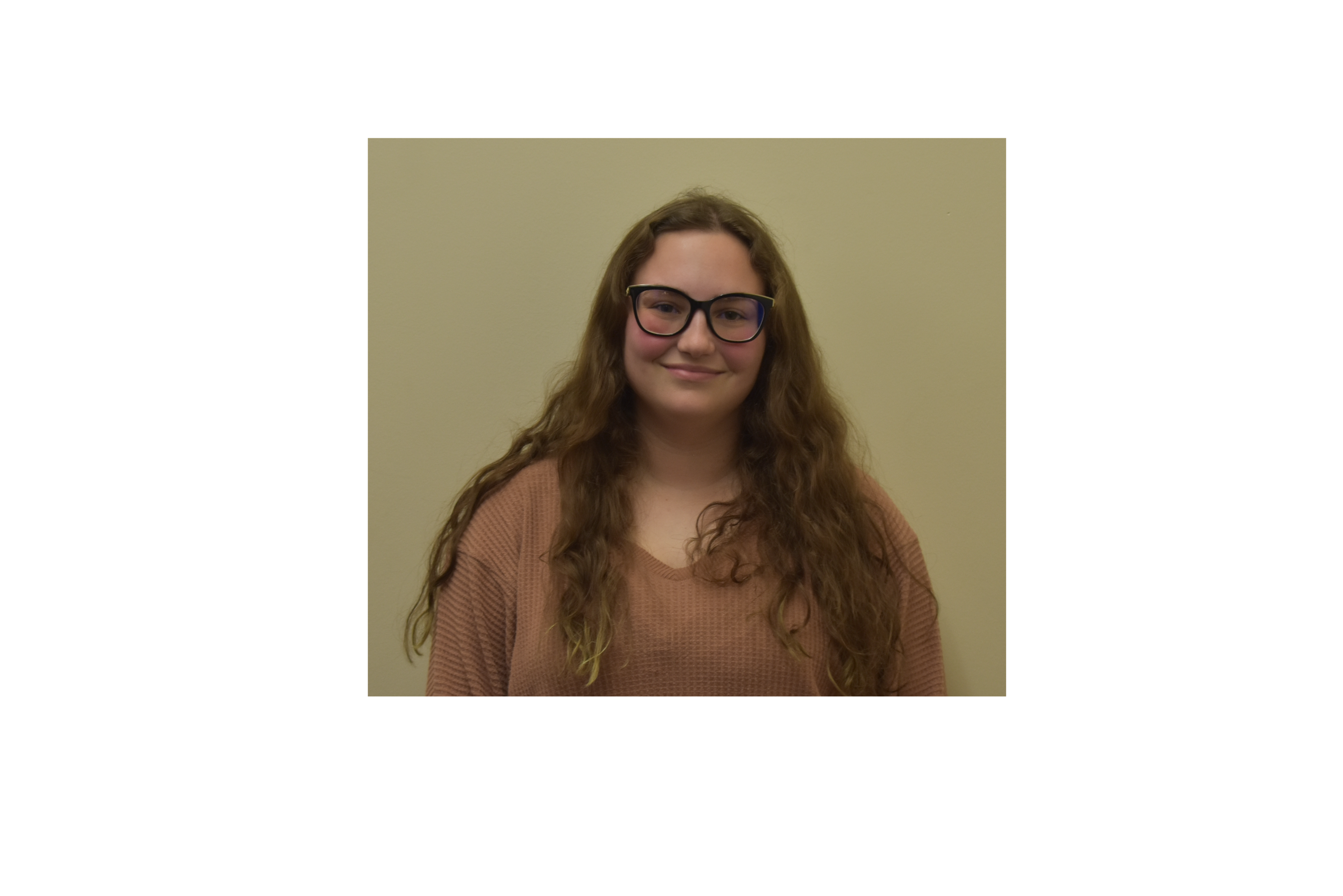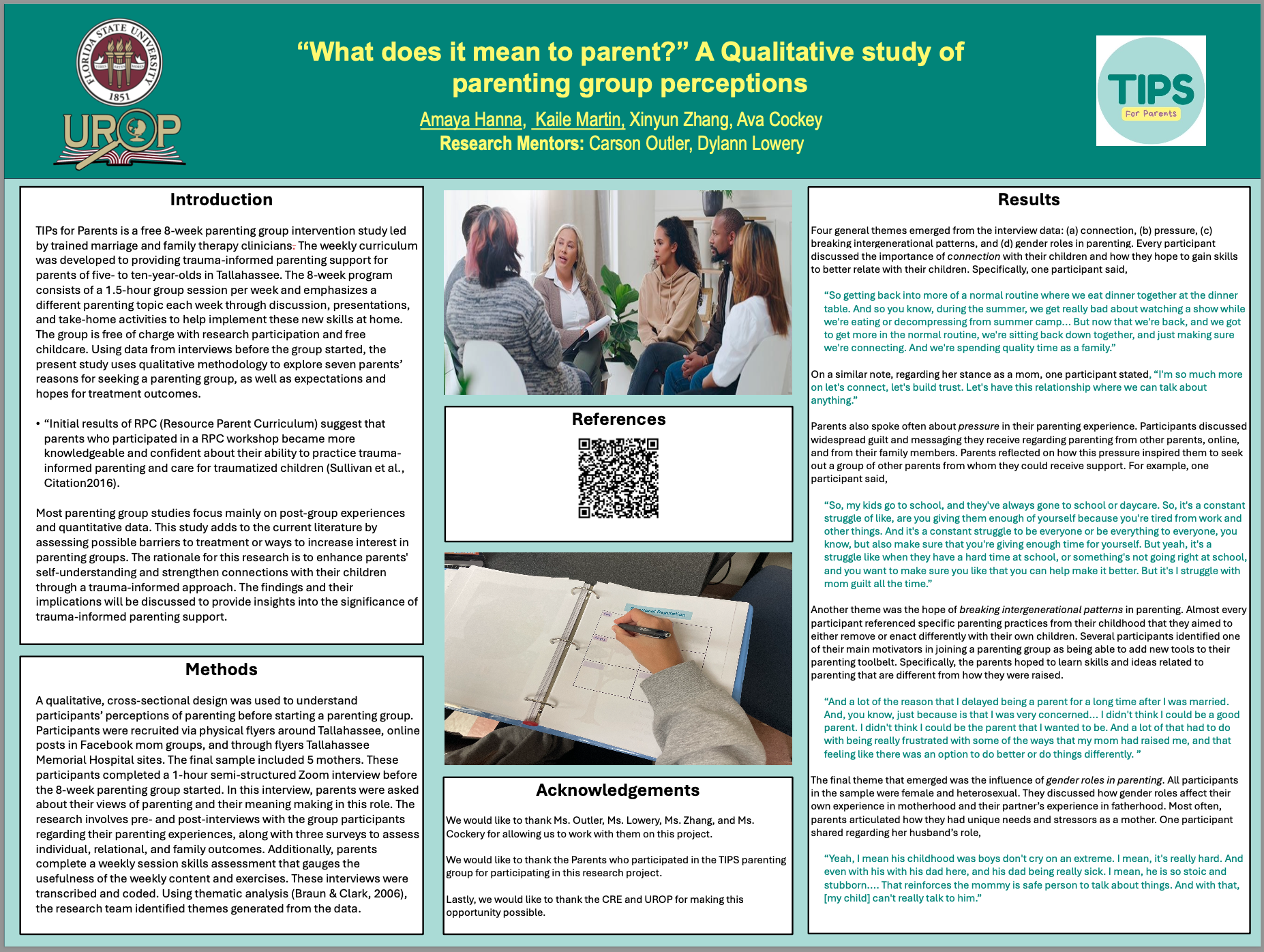Research Symposium
24th annual Undergraduate Research Symposium, April 3, 2024
Amaya Hanna Poster Session 3: 1:30 pm - 2:30 pm /207

BIO
Amaya Hanna is currently a Second-year student at Florida State University College of Health and Human Sciences where she is pursuing a degree in Human Development and Family Sciences (BS) with a minor in Chemistry. She is originally from Philadelphia, Pennsylvania, and grew up in Northeast Florida, her entire life she has wanted to become a Doctor, and in 2019 she decided on wanting to become an Endocrinologist. She is currently in the CARE program as well as SSS-STEM at FSU. She wants to pursue more research into how parent-child relationships affect a child's mental and physical well-being.
“What does it mean to parent?” A Qualitative study of parenting group perceptions
Authors: Amaya Hanna, Carson OutlerStudent Major: Human Development and Family Sciences
Mentor: Carson Outler
Mentor's Department: Marriage and Family Therapy Mentor's College: COLLEGE OF HEALTH AND HUMAN SCIENCES Co-Presenters: Kaile Martin
Abstract
TIPs for Parents is a free 8-week parenting group intervention study led by trained marriage and family therapy clinicians aimed at parents of five-to-ten-year-olds providing trauma-informed parenting support. The 8-week program consists of a 1.5-hour group session per week and emphasizes a different parenting topic each week through discussion, presentations, and take-home activities to help implement these new ideas into the home and offers a free participation option with a research component. The research involves pre- and post-interviews with the group participants regarding their parenting experiences, along with three paper surveys to gauge the effectiveness of the discussed topics. Using data from interviews before the group started, the present study uses qualitative methodology to explore seven parents’ reasons for seeking a parenting group, as well as expectations and hopes for treatment outcomes. Most parenting group studies focus mainly on post-group experiences and quantitative data. This study adds to the current literature by assessing possible barriers to treatment or ways to increase interest in parenting groups. Notably, the parenting group is scheduled for the Spring of 2024, with a single group of parents with children between 1 and 9 years of age. The rationale for this research is to enhance parents' self-understanding and strengthen connections with their children through a trauma-informed approach. The methods encompass interviews and surveys, and the outcomes are expected to shed light on the program's impact on parenting practices. The findings and their implications will be discussed to provide insights into the significance of trauma-informed parenting support.
Keywords: Child development, Parent relationships


